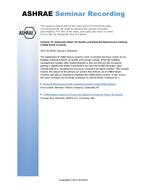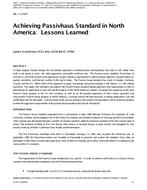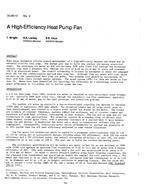Two primary tasks have been accomplished: (1) the development of a computerized technique for calculating daylighting levels and distribution in a room and (2) incorporating this technique into a public domain building thermal load program (NBSWHF), so that daylighting in interior spaces is modeled with the dynamic lighting changes similar to or the same as those in the thermal load. The particular features of the daylighting program are that it calculates the daylight distribution at nine points in the room and it considers both overcast and clear skies–the latter with or without sun on the fenestration–diffuse shading if any and vertical clear glazing of any user-specified transmittance. The calculations have been checked against measurements and are in good agreement. When combined with the load program, the daylighting routine is also used to determine if the daylighting is effective in reducing total building energy requirements by reducing electrical lighting energy requirements for a given fenestration configuration and the associated heat loss-heat gain effects on the total load.
Citation: ASHRAE Transactions, 1983, vol. 89, pt. 1A, Atlantic City, NJ
Product Details
- Published:
- 1983
- Number of Pages:
- 13
- File Size:
- 1 file , 700 KB
- Product Code(s):
- D-AC-2758


